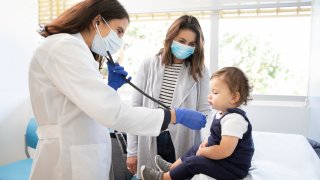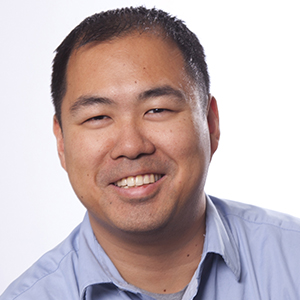

The following content is created in consultation with Stanford Children’s Health. It does not reflect the work or opinions of the NBC Bay Area editorial staff. To learn more about Stanford Children’s Health, click here.
The world we’re living in has required us all to adapt to change. Be it for work, celebrations, or even hanging out with friends, we’ve gotten used to doing it through a screen. Seeing others in person—safely and without worry—may feel like something from the past. But it doesn’t have to be that way, at least not for every aspect of our lives.
Though visiting a hospital or a doctor’s office during an ongoing pandemic might seem scary, it can actually be a safe experience. With the possibility of in-person visits and telehealth appointments, it’s important to explore your options—especially when it comes to seeing your child’s pediatrician for consultations and wellness checks—and know when to, quite literally, make a call.
Get a weekly recap of the latest San Francisco Bay Area housing news. Sign up for NBC Bay Area’s Housing Deconstructed newsletter.
Dr. Harry Huang, a pediatrician at Stanford Children’s Health Bayside Medical Group, gives us insight on the importance of wellness checks and why parents can feel safe when they visit the doctor's office.
NBC Bay Area: Why is it so important to stay on top of wellness checks for kids, especially during this time?

Dr. Harry Huang: Most parents understand the importance of the wellness checks in the early years. It becomes more of a question when the kids get to elementary school, junior high and high school, and why those visits are still important. I think they’re even more important during this COVID time because we’ve seen a lot of children who are just not doing well. Wellness checks are a good chance for us as pediatricians to follow up and make sure that not just physical health is doing well, but also check on the kids’ mental health. There are a lot of things that have been very unique to this year because of the pandemic.
I wish we could see kids more often. It’s generally once a year, and a lot happens in a year. It’s good practice, from a pediatrician’s standpoint, to have that annual or periodic checkup to see how the children and their families are doing.
NBC Bay Area: What can parents expect during a wellness check?
HH: During the wellness checks, we are checking basic vital signs, including height and weight, and for the younger children, we monitor their head circumference. We also check blood pressure, hearing and vision—basic screening tests that are very important to catch things that could be an issue.
They offer us a chance to sit down with the patients and the family and talk about anything and everything: nutrition, exercise, any problems that the patients or the parents have identified. We also go over what we call anticipatory guidance, things to prepare for what’s coming. I love to help identify what to expect and what’s within the range of normal development. And in older kids, it’s a very important time to make sure they are doing really well academically and that their mental health is well. And also, of course, we do vaccinations and any blood tests that are required for a certain age. That’s all addressed in wellness visits.
NBC Bay Area: Why are vaccinations so important and why shouldn’t they be delayed, especially right now?
HH: The schedule of vaccines has been made to ensure that the immunity does not wear off at any point in your childhood leading to even adulthood. Even though COVID is the predominant infection out there right now, other infections, vaccine-preventable infections, are not taking a break. Pertussis, measles and so on, are still present in the community and in our nation. Staying on top of the vaccine schedule ensures that your child doesn’t lose or have a lull in their immunity at any point during their childhood.
NBC Bay Area: And what about flu shots?
HH: They have traditionally been given starting in the fall through the winter. Flu season, depending on where you live in the nation, usually starts around October, and ends even sometimes as late as June and July.
Keep in mind that every year it’s a different flu vaccine for the different strains that come into the area. It’s definitely an effective means to protect you and your children from influenza. In the start of the pandemic, we saw a lot of people getting both, flu and COVID. It was a double whammy. I think the flu vaccine is a very safe way to eliminate that possibility, so I definitely do recommend it.
NBC Bay Area: When should parents reach out to their pediatricians?
HH: With the technology that’s available today, it’s as easy as an email. I always tell parents that there’s really no silly question. I don’t want to stress that the pandemic changes things—it doesn’t—but it brings a whole new set of variables and struggles that children might be having. It’s good to reach out any time you notice there’s something that you’re not certain or worried about as a parent.
With all the ramifications of the pandemic, quarantine and school, it can get very complicated. I would say that, more than before, it’s better to reach out to your pediatrician if you have any concerns. We’re here to help, guide and provide that care and support that could help prevent further problems, especially if care is delayed.
NBC Bay Area: What are some of the warning signs regarding mental health that parents should be more aware of?
HH: It’s a major problem right now, with all the changes of the past year. Among the signs to keep an eye on are: Sleep and appetite changes, loss of interest, drop-off in school performance, general irritability and mood changes. A lot of these are normal things we’ve experienced during the pandemic, but for kids, especially the younger ones, it’s hard to process these things. If you see any of these warning signs, reach out to your pediatrician.
NBC Bay Area: What are some of the safety measures that have been put into place in your practice and at the hospital?
HH: A lot has changed. First of all, everybody over the age of two is wearing a mask and is socially distancing. For our office in particular, we have checkpoints from the time you make an appointment, when we confirm it, to the time you come into the office. If anybody is sick or identifies any illness symptoms, we take action and if it’s a serious illness or symptom, we switch that visit to a telehealth appointment.
I completely understand the concern around going to a hospital. At many points this year it’s been very scary, especially for parents with young kids—they want to protect their children. I would say that it’s very safe now to go to a hospital or a doctor’s office. And it’s always very easy and safe to communicate by email or phone. That’s the take-home message: If you’re worried, reach out. As pediatricians, we’re here for you.
Wellness checks are just one service offered for kids at Stanford Children’s Health. To learn more about how their team of doctors is ready to help you and your family, click here.

